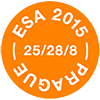|
RN coordinators: Maria Nawojczyk, AGH University of Science and Technology, Krakow, Poland maria(at)list.pl Sebastian Koos, University of Mannheim, Mannheim, Germany Sebastian.Koos(at)mzes.uni-mannheim.de
The network’s objective is to promote the sociological study of the economy in its entirety and we welcome both new theoretical and empirical contributions. Today's rapidly changing and highly uncertain economies put existing theories to a challenging test. New inequalities are arising, new differences emerge and sociological imagination is in need to understand the causes, dynamics and consequences of economic exchange in Europe and beyond. How can we understand and explain market dynamics, disruptive changes, and economic transitions? What are the consequences of such changes? What can economic sociology contribute to the understanding and explanation of social inequalities? How do financial markets work? Is economic sociology up to the task of thoroughly analyzing and understanding market transitions not only within Europe but also in other regions of the world, the consequences of global financial crisis, or the new modern forms of calculability, governance, and social control? We invite submission addressing these questions, but we are open for all themes that relate to the field of economic sociology. When submitting an abstract for sessions of our research network please clearly state the research question addressed, the theoretical arguments and/or empirical data and methods used. We will review the abstracts according to whether the paper will make an understandable, original and meaningful contribution to the field of economic sociology. |
…
We invite papers to a joint session held between RN05 (Sociology of Consumption) and RN09 (Economic Sociology) focusing on different experiences and coping strategies of consumers in relation to economic shocks, like the financial and fiscal crises of the last years. Consumers’ everyday lives have been affected by the crises on multiple levels – from job loss and decline of household income to increasing austerity in social policies. This joint session asks, what has been the interaction between the macro-level, global and local economic phenomena, policy measures responding to the crises and the individual and household coping practices with disruption. We invite papers from different parts of Europe and beyond, where the unfolding, duration and recovery from the crises has had different paces and intensities, from severe downturns to quick recovery or stagnation. In addition, we welcome papers that deal with changing patterns of economic exchange, like share economies, gift giving, innovative and alternative ways of consumption and prosumption, bridging consumer and producer roles. Moreover we are interested in papers addressing what lessons have been learned from the crises so far – for consumers and market economies at large. Therefore, we encourage the submission of abstracts relating to the following themes: - consumers and austerity policy - impoverishment and coping; disruption of lifestyles - alternative and innovative modes of consumption and prosumption - share economies; alternative modes of economic exchange - economic and policy interventions to deal with crisis and their repercussions for consumers - different regional experiences of crisis - different temporalities of crisis - memories of past crises and present intergenerational coping practices, various forms of solidarity - theoretical development of concepts that gained visibility during the crisis (e.g. security, insecurity, poverty, material deprivation, the ‘neither-nor generation’) - consumers, creativity and improvisation in times of crisis
In Europe the creation of a common internal (transnational) market has been at the core of the European Union project. But economic exchange and relations today not only transcend national borders on a European scale, but have long extended to the most distant places in the world. The process of economic globalization can be understood as a multi-level transnational expansion and intensification of the exchange of goods, services, money, and of flows of production, technologies, people, and ideas (economic policy and management ideologies). This globalization of the economy and especially of markets has challenged Europe and the different European national economies, yielding both positive and negative consequences. In this session we are interested in the causes, dynamics and consequences of the globalization of economy and markets, specifically from a European perspective. a) Causes: Which factors have fostered economic globalization? What drives the global spread of markets? What are the historical legacies of globalization in Europe? b) Dynamics and nature:Is economic globalization a uniform process, which affects all countries, regions and citizens similarly? Is capitalist economic globalization compatible with economic alternatives and experiments? Which main social factors shape the process of economic globalization? c) Consequences and effects: Does globalization promote social inequality within Europe? Who benefits from the globalization of markets and why? Does economic globalization lead to convergence in the organization of economies and individual’s economic practices? While these are examples of questions or themes that we would like to discuss and advance knowledge, papers dealing with similar and related issues and questions are also welcome. |
|
Notes for authors Authors are invited to submit their abstract either to the general session or any specific session. Please submit only to one session. After abstract evaluation, coordinators will have the chance to transfer papers between sessions where applicable. Abstracts should not exceed 250 words. Each paper session will have the duration of 1.5 hours. Normally sessions will include 4 papers. Abstracts must be submitted online to the submission platform, see below. Abstracts sent by email cannot be accepted. Abstracts will be peer-reviewed and selected for presentation by the Research Network; the letter of notification will be sent by the conference software system in early April 2015. Abstract submission deadline (extended): 15th February 2015 Abstract submission platform: www.esa12thconference.eu |
|
If you have further questions on the conference, please visit the conference website. For further information on the Research Network, please visit www.europeansociology.org. |






